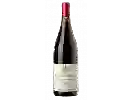
Coeur du Loup Vins -Domaine de Guette LoupCuvee Coeur Du Loup Val De Lire Chardonnay
This wine generally goes well with pork, vegetarian or poultry.
Food and wine pairings with Cuvee Coeur Du Loup Val De Lire Chardonnay
Pairings that work perfectly with Cuvee Coeur Du Loup Val De Lire Chardonnay
Original food and wine pairings with Cuvee Coeur Du Loup Val De Lire Chardonnay
The Cuvee Coeur Du Loup Val De Lire Chardonnay of Coeur du Loup Vins -Domaine de Guette Loup matches generally quite well with dishes of pork, rich fish (salmon, tuna etc) or vegetarian such as recipes of home-made coq au vin, potato and tuna gratin or quiche without pastry, courgette and blue cheese.
Details and technical informations about Coeur du Loup Vins -Domaine de Guette Loup's Cuvee Coeur Du Loup Val De Lire Chardonnay.
Discover the grape variety: Chardonnay
The white Chardonnay is a grape variety that originated in France (Burgundy). It produces a variety of grape specially used for wine making. It is rare to find this grape to eat on our tables. This variety of grape is characterized by small bunches, and small grapes. White Chardonnay can be found in many vineyards: South West, Burgundy, Jura, Languedoc & Roussillon, Cognac, Bordeaux, Beaujolais, Savoie & Bugey, Loire Valley, Champagne, Rhone Valley, Armagnac, Lorraine, Alsace, Provence & Corsica.
Informations about the Coeur du Loup Vins -Domaine de Guette Loup
The Coeur du Loup Vins -Domaine de Guette Loup is one of of the world's greatest estates. It offers 3 wines for sale in the of Loire Valley to come and discover on site or to buy online.
The wine region of Loire Valley
The Loire Valley is a key wine region in western France. It follows the course of the Loire River on its Long journey through the heart of France, from the inland hills of the Auvergne to the plains of the French Atlantic coast near Nantes (Muscadet country). Important in terms of quantity and quality, the region produces large quantities (about 4 million h/l each year) of everyday wines, as well as some of France's greatest wines. Diversity is another of the region's major assets; the styles of wine produced here range from the light, tangy Muscadet to the Sweet, honeyed Bonnezeaux, the Sparkling whites of Vouvray and the juicy, Tannic reds of Chinon and Saumur.
The word of the wine: Water stress
Lack of water. Water stress blocks the vegetative cycle of the vine, which uses all available resources to maintain the integrity of the plant, thus blocking the ripening process of the grapes.











